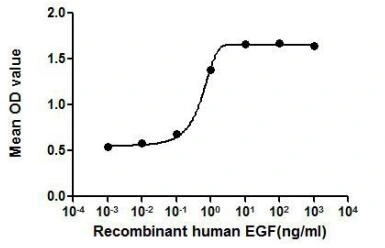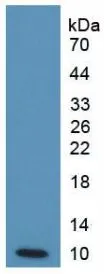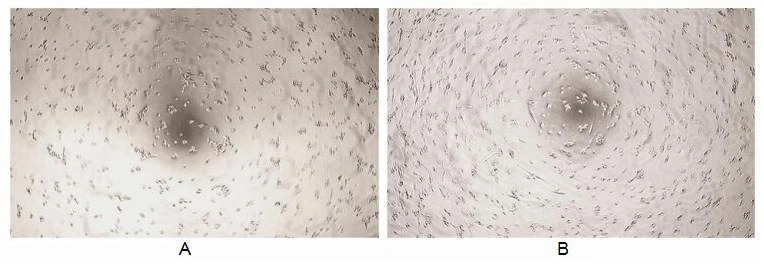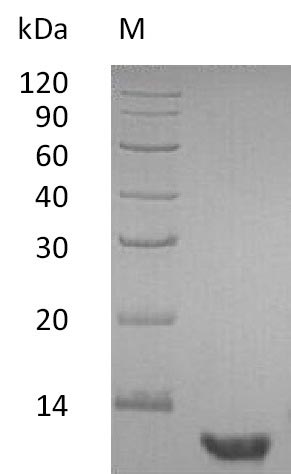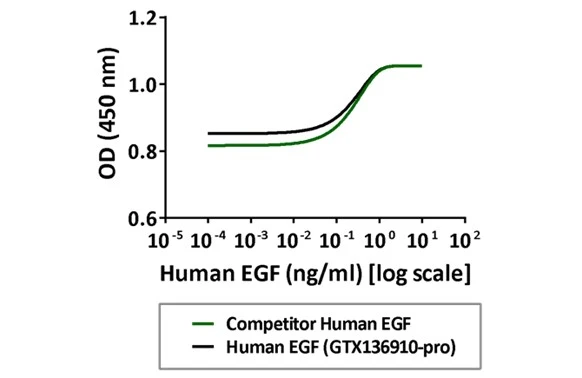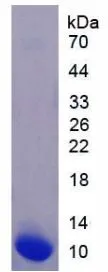
SDS-PAGE analysis of GTX00114-pro Human EGF protein (active).
Human EGF protein, His tag (active)
GTX00114-PRO
ApplicationsFunctional Assay
Product group Proteins / Signaling Molecules
Protein IDP01133
Overview
- SupplierGeneTex
- Product NameHuman EGF protein, His tag (active)
- Delivery Days Customer9
- Application Supplier NoteEpidermal growth factor (EGF) is a growth factor that stimulates cell growth, proliferation, and differentiation by binding to its receptor EGFR. To test the effect of EGF on cell proliferation of 3T3 fibroblasts, 3T3 cells were seeded into triplicate wells of 96-well plates at a density of 2000 cells/well and allowed to attach overnight, then the medium was replaced with serum-free standard DMEM prior to the addition of various concentrations of EGF. After incubated for 72h, cells were observed by inverted microscope and cell proliferation was measured by Cell Counting Kit-8 (CCK-8). Briefly, 10 microl of CCK-8 solution was added to each well of the plate, then measure the absorbance at 450nm using a microplate reader after incubating the plate for 1-4 hours at 37C . Cell proliferation of 3T3 cells after incubation with EGF for 72h observed by inverted microscope.
- ApplicationsFunctional Assay
- CertificationResearch Use Only
- ConjugateUnconjugated
- Gene ID1950
- Target nameEGF
- Target descriptionepidermal growth factor
- Target synonymsHOMG4, URG, pro-epidermal growth factor, beta-urogastrone
- Protein IDP01133
- Protein NamePro-epidermal growth factor
- Scientific DescriptionThis gene encodes a member of the epidermal growth factor superfamily. The encoded preproprotein is proteolytically processed to generate the 53-amino acid epidermal growth factor peptide. This protein acts a potent mitogenic factor that plays an important role in the growth, proliferation and differentiation of numerous cell types. This protein acts by binding with high affinity to the cell surface receptor, epidermal growth factor receptor. Defects in this gene are the cause of hypomagnesemia type 4. Dysregulation of this gene has been associated with the growth and progression of certain cancers. Alternative splicing results in multiple transcript variants, at least one of which encodes a preproprotein that is proteolytically processed. [provided by RefSeq, Jan 2016]
- Storage Instruction-20°C or -80°C,2°C to 8°C
- UNSPSC41116120
- SpeciesHuman

